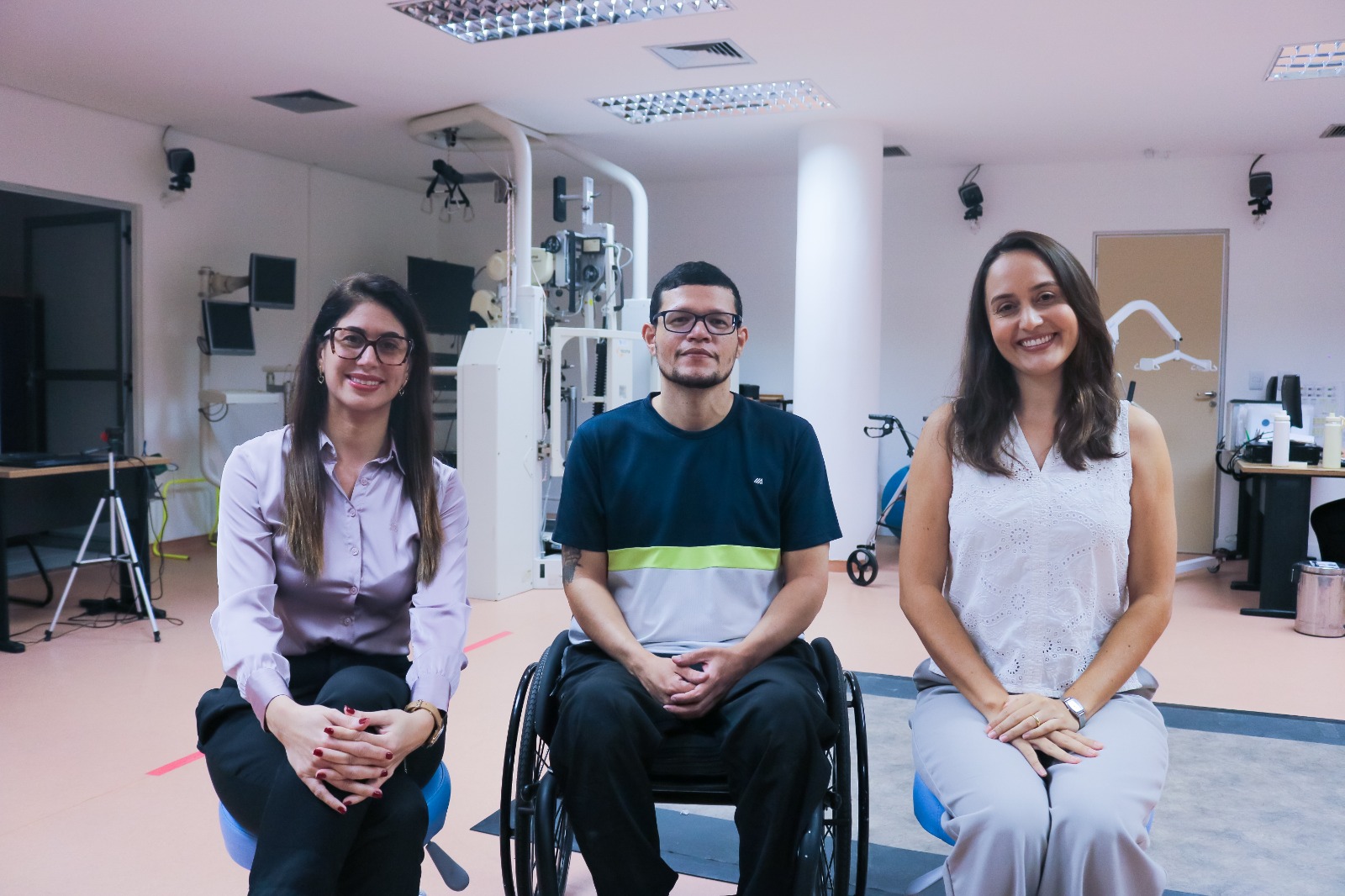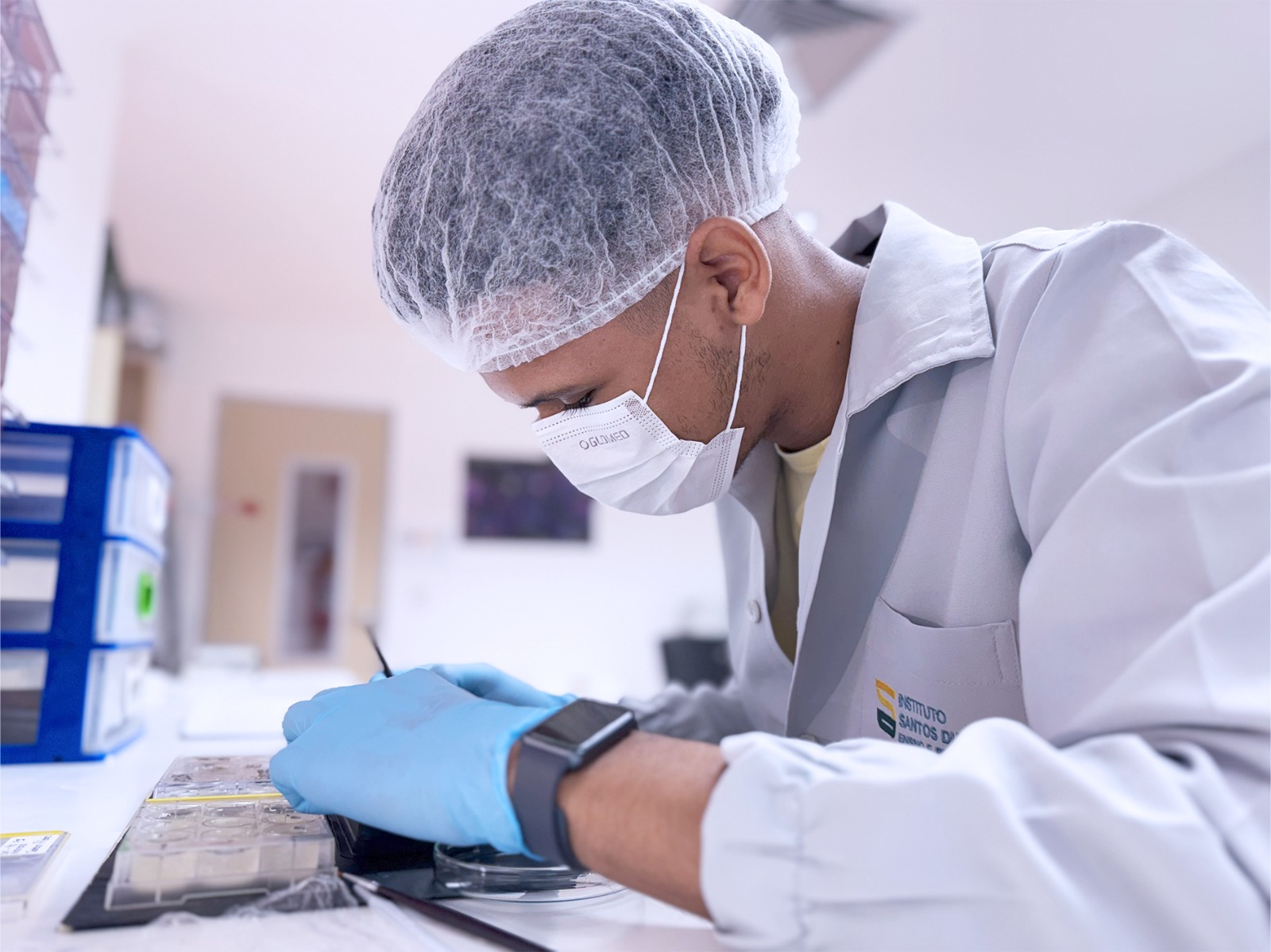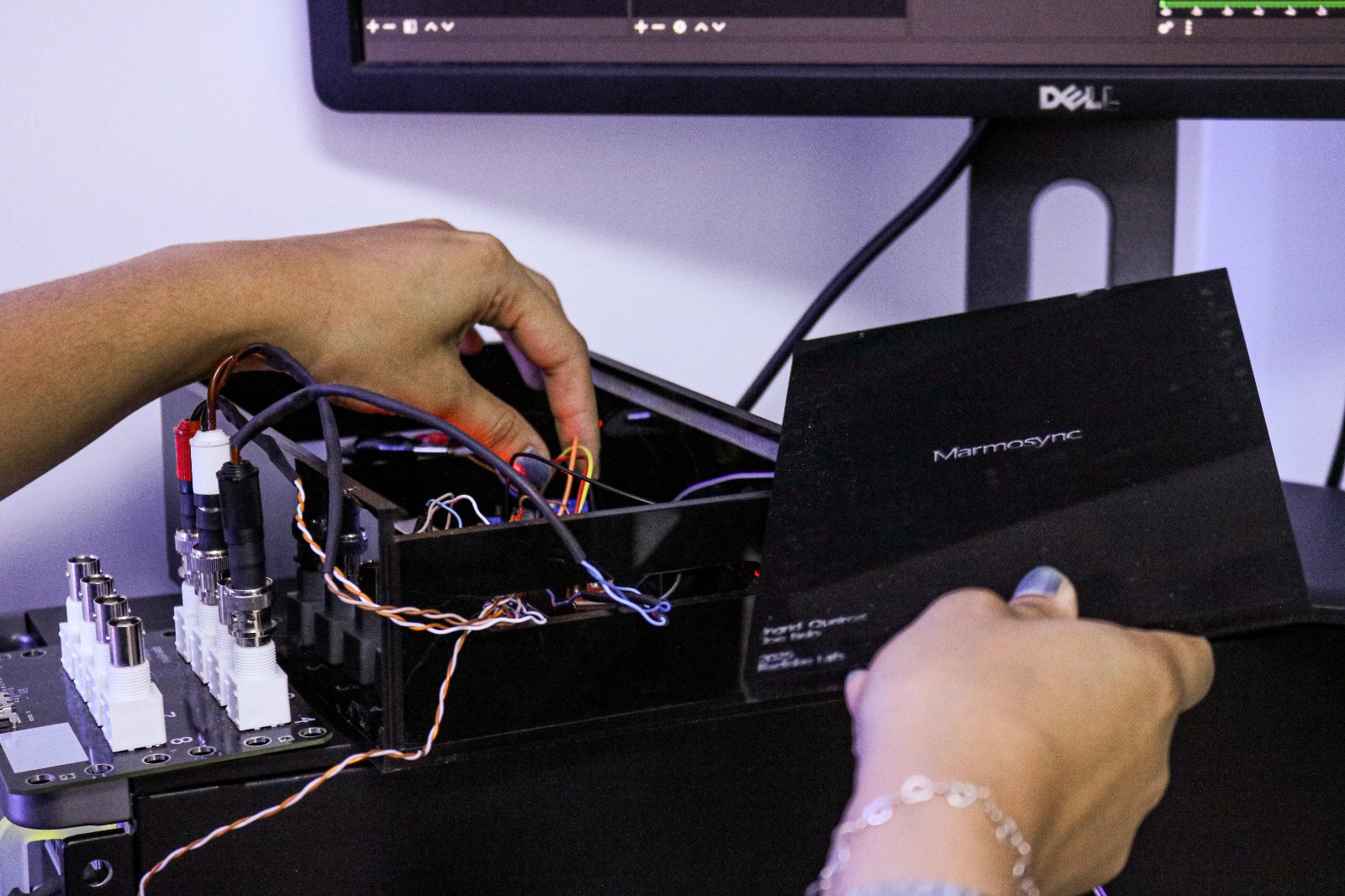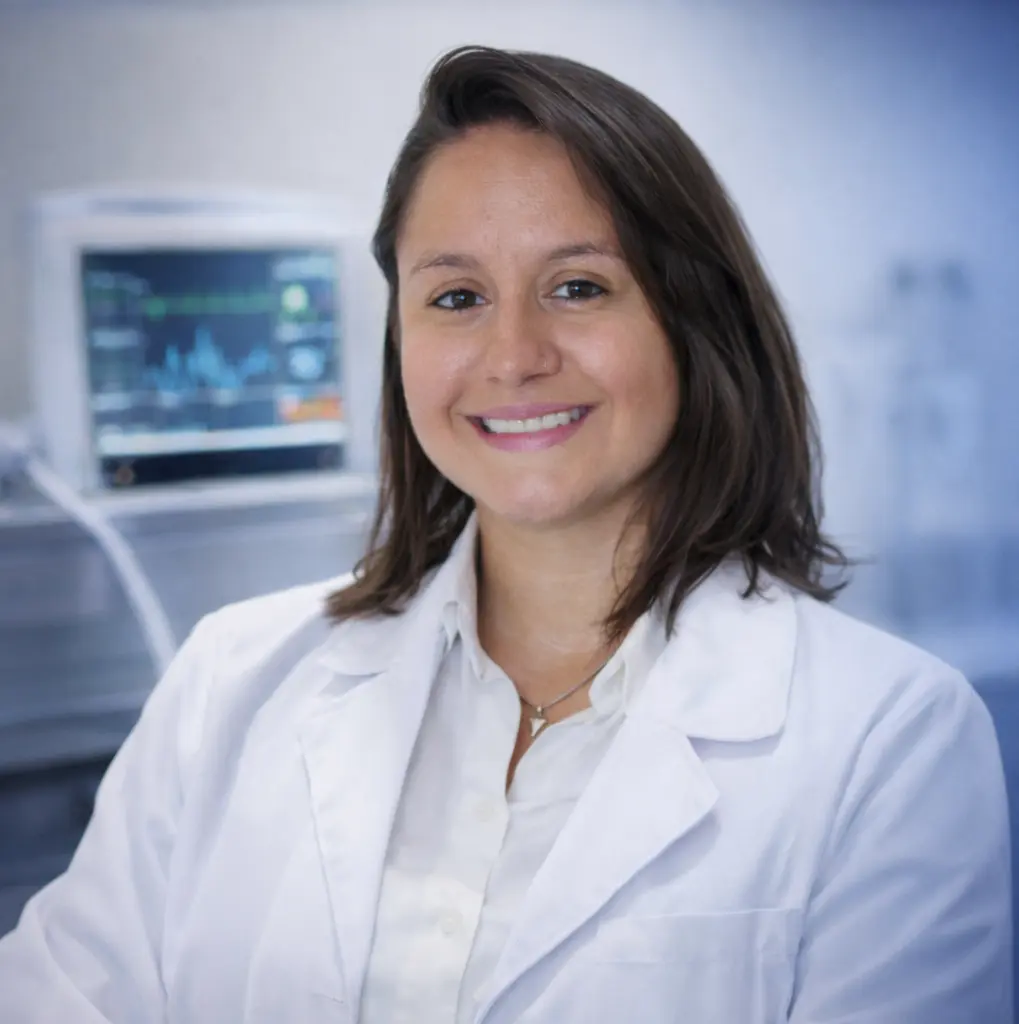The pandemic caused by the SARS-COV-2 virus transformed the planet, and scientific research was not immune to this transformation. All over the world, researchers working on the development of services, products and research in the most diverse areas had to stay away from laboratories for an indefinite period of time from March 2019 to comply with the isolation recommendations determined by health organizations.
The changes were not limited to routines and workspace. The world of research was not oblivious to the loss of more than 635 thousand Brazilian lives, such as the professor of the Department of Chemistry at the State University of Rio Grande do Norte (UERN), Luiz Di Souza, aged 61, honored by colleagues and students for his contribution especially in the field of popularization of science.
The impact of the economic crisis was also felt by the families of thousands of students, and the significant cuts in government budgets allocated to scientific research were felt with greater intensity.
That, however, was not all: there was also collaboration. Students and researchers from different areas began to dialogue to learn more about how science could contribute to the national scenario.
Engineering and IT students turned their knowledge to the production of Personal Protective Equipment for healthcare professionals. Research centers directed all human resources to discover how to make the global lack of hospital and respiratory equipment less felt in the Brazilian Unified Health System (SUS).
Almost two years after the first recorded case of Covid-19 in Brazil, the national scenario is different, and so is the world of research. The virus that infected more than 21 million Brazilians left consequences. Fatigue, headaches and memory problems are reported by patients who have had the most severe cases, to those who have had mild symptoms.
About the changes caused by the pandemic in the scientific research segment, the impacts of Covid-19 on neuroscience and the challenges for researchers in the current scenario, the reporting team interviewed Edgard Morya, manager of the Edmond and Lily Safra International Institute of Neurosciences (IIN -ELS), in Macaíba (RN).
Check out the interview below:
What was the impact of the pandemic on the way research is done?
I see the pandemic influencing research throughout Brazil and the world in different ways. The first is the negative point, which was hindering research. Researchers and students were unable to go to the laboratory and much had to be interrupted or delayed. But there was a next phase, which had very good aspects: researchers got together, people from different areas, and started working to make science, in some way, help in different areas of health in general in Brazil. Many researchers came together to propose solutions for the country. This was the main positive impact. Still, the impact was very negative for laboratories with less conditions, where students ended up with losses in their research and theses. The phases were different across the country. What is important is for Brazil to have a country project to ensure that even laboratories that have fewer resources or are further away from some centers can also carry out research even during the pandemic. So, the pandemic at the current time means that students, anywhere in the country and in the world, can get in touch with someone, and researchers, and I notice this all over the world, are very open to this type of collaboration, something that was a little more difficult before the pandemic, but a little more thought was given to face-to-face contact. In this aspect it was also something positive for the world of research, as it consisted of putting an end to geographical limits. Today, we interact with people from all over the world.
Much has been discussed about science throughout these years of pandemic. Speeches that invalidate vaccines, for example, have gained ground on the international scene. What does this say about the perception we have of science and what a researcher does? Was this perception changed during the pandemic?
This is the main point in relation to research when we think about its role on the planet. When we train students for research, what is our role? Is it just producing knowledge? Whoever is in the laboratory developing research, products, solutions, services, does not just need to develop a scientific article. We need to make sure this information reaches society. To make this really happen, people need to spread awareness and facilitate access to information. The pandemic has highlighted the role of research and its importance for the country and the world. And, with that, she will become more interested and start asking more questions. We need to get students from elementary school to high school to question more, because this will make the teacher naturally collect more information to take to these students. If we can make this become a loop infinite, we will make the country better. We need to invest in research, but ensure that this information and knowledge reaches society. In this sense, researchers and students who are graduating from their master's degree or doctorate need to act actively to make the knowledge that is being produced in the laboratory reach the population in a more accessible way.
Two years after the arrival of the pandemic in Brazil, many patients report neurological sequelae after contracting covid-19. What does this mean for the world of neuroscience over the next few years?
With the pandemic, we went through two phases: the first was the acute phase, in which the focus was on respiratory problems and saving lives. After this phase, what we are seeing now, both in patients who were hospitalized and spent in the ICU and in patients who had very mild symptoms, are several cases of complaints about memory, tiredness, fatigue. What we will need to understand through scientific research in the coming years is: what is the impact of SARS-COV-2 on the nervous system, whether in the brain or in the periphery, because this, in one or two years from now, could have an impact whether in children, who had very mild symptoms, but who may develop something that we still don't know about, or in older people, in whom we already know a little more about these changes. We already have ways to do something in the Unified Health System, for example, to start anticipating what will arrive in some time. If these changes in memory, fatigue and tiredness increase, we can already prevent them and make better decisions in relation to this. At this moment, we need to start thinking not only about when the pandemic passes, but about the things that are already happening and that give signs of what will come next year. Therefore, we need to take action this year.
As you mentioned, many of the symptoms of neurodegenerative conditions are already better known in older people, regardless of whether they have contracted Covid-19 or not. As the population ages and life expectancy increases, what will be the role of research focused on studies on rehabilitation and prevention of these conditions?
In Brazil, we already know that 150 years ago, life expectancy was 35 to 40 years. Now, we have a life expectancy of 80 years, we are living practically twice as long. So, we also know that if you live longer, you are more likely to have neurodegenerative diseases. Instead of waiting for this overload on the SUS, research can now invest in this to alleviate this impact, whether in prevention, or in the best form of rehabilitation, so that people have a quality of life and do not survive due to the disease for the rest of life. So, we need to improve the way we act, including prevention and treatment in Brazil.
Who
Edgard Morya has a Bachelor's degree in Physiotherapy from the University of São Paulo (USP), a PhD in Human Physiology from the Institute of Biomedical Sciences of the University of São Paulo and a Post-Doctorate in Human Physiology from the Institute of Biomedical Sciences of the University of São Paulo. He is currently manager of the Edmond and Lily Safra International Institute of Neuroscience (IIN-ELS), one of the two units of the Santos Dumont Institute (ISD) in Macaíba, Rio Grande do Norte.
Text: Mariana Ceci / Ascom – ISD
Photograph: Mariana Ceci / Ascom – ISD
Communication Office
comunicacao@isd.org.br
(84) 99416-1880
Santos Dumont Institute (ISD)
It is a Social Organization linked to the Ministry of Education (MEC) and includes the Edmond and Lily Safra International Institute of Neurosciences and the Anita Garibaldi Health Education and Research Center, both in Macaíba. ISD's mission is to promote education for life, forming citizens through integrated teaching, research and extension actions, in addition to contributing to a fairer and more humane transformation of Brazilian social reality.













